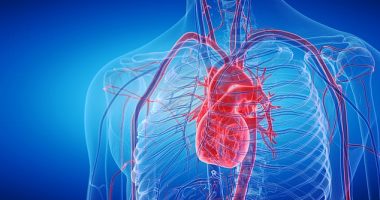Older and frail patients will be given ‘health MOTs’ at the entrance of emergency departments to avoid unnecessary hospital admissions.
The approach could be a ‘lifeline’ for many patients, and would allow them to be assessed and supported more quickly, according to NHS England chief executive Amanda Pritchard.
The approach, to be outlined in her speech to the NHS ConfedExpo conference in Manchester today, will focus on patients over the age of 65 or those with frailty-related conditions.
Ms Pritchard is expected to say: ‘With rising demand for care, it is vital that we continue to adapt our services to meet the growing and changing needs of patients – which is why, as part of our Urgent and Emergency Care Recovery Plan, we have asked NHS hospitals to introduce practical measures to ensure older people get the care and support they need.’
NHS England estimates that about one million people over the age of 75 are admitted to hospital each year, a fifth of whom are very frail.


It is hoped the move will allow more patients to be assessed, treated and discharged home on the same day, avoiding the need for an overnight stay
The tests, which will run for 10 hours a day, seven days a week, will check blood pressure, heart health and mobility, as well as checking for malnutrition.
NHS staff will also look at a patient’s respiratory and fall records.
Based on the results, patients will be signposted to specialist care, such as fall services and dementia support.
It is hoped the move will allow more patients to be assessed, treated and discharged home on the same day, avoiding the need for an overnight stay.
Ms Pritchard will add: ‘While some people do need to be admitted, it isn’t always the most suitable place for older patients’ needs, and they can also rapidly lose mobility while in hospital.
‘Health MOTs at the front door of A&Es for older people could be a lifeline for many – from blood pressure tests to a review of their falls history, these checks mean patients can be assessed quickly and directed to the right support for their needs.’
Half of admitted frail older patients experience functional decline between admission and discharge, and up to 50 per cent of older people can become incontinent within 48 hours of admission.
In the first week in hospital, patients can see their muscle strength reduced by up to 10 per cent, and circulation reduced by up to 25 per cent.
Sir Julian Hartley, chief executive at NHS Providers, which represents NHS trusts, said: ‘Half of hospital inpatients aged over 65 are affected by frailty and the growing number of people with frailty will have a significant impact on future health and care services.
‘Community health services are spearheading innovative care for people with frailty, supporting them to stay well in their own homes, with some trusts already providing front-door frailty services within hospitals.
‘But too many frail people who need well-planned, joined-up care still aren’t getting the support they need.
‘National policy-makers must support trusts and local health system partners with more investment and resources in the community to make sure that patients can have the right care at the right time in the right place.’
Ms Pritchard is also expected to outline additional support for patients who are admitted to hospital in a bid to help prevent them from deteriorating.
Hospitals around the country are already trying to tackle this deconditioning, preventing harm to patients and improving their outcomes, all while having fun.
Examples include chair-based exercises like yoga, ‘race track’ routes on wards, static pedals for patients receiving dialysis, or care home pedometers for residents to do virtual coastline walks.
The NHS England Urgent and Emergency Care Recovery Plan published last month includes cash incentives for hospitals that do not leave patients waiting in A&E for 12 hours or more.
The NHS will also expand its use of virtual wards in a bid to free up space in emergency departments.
Source: Mail Online








